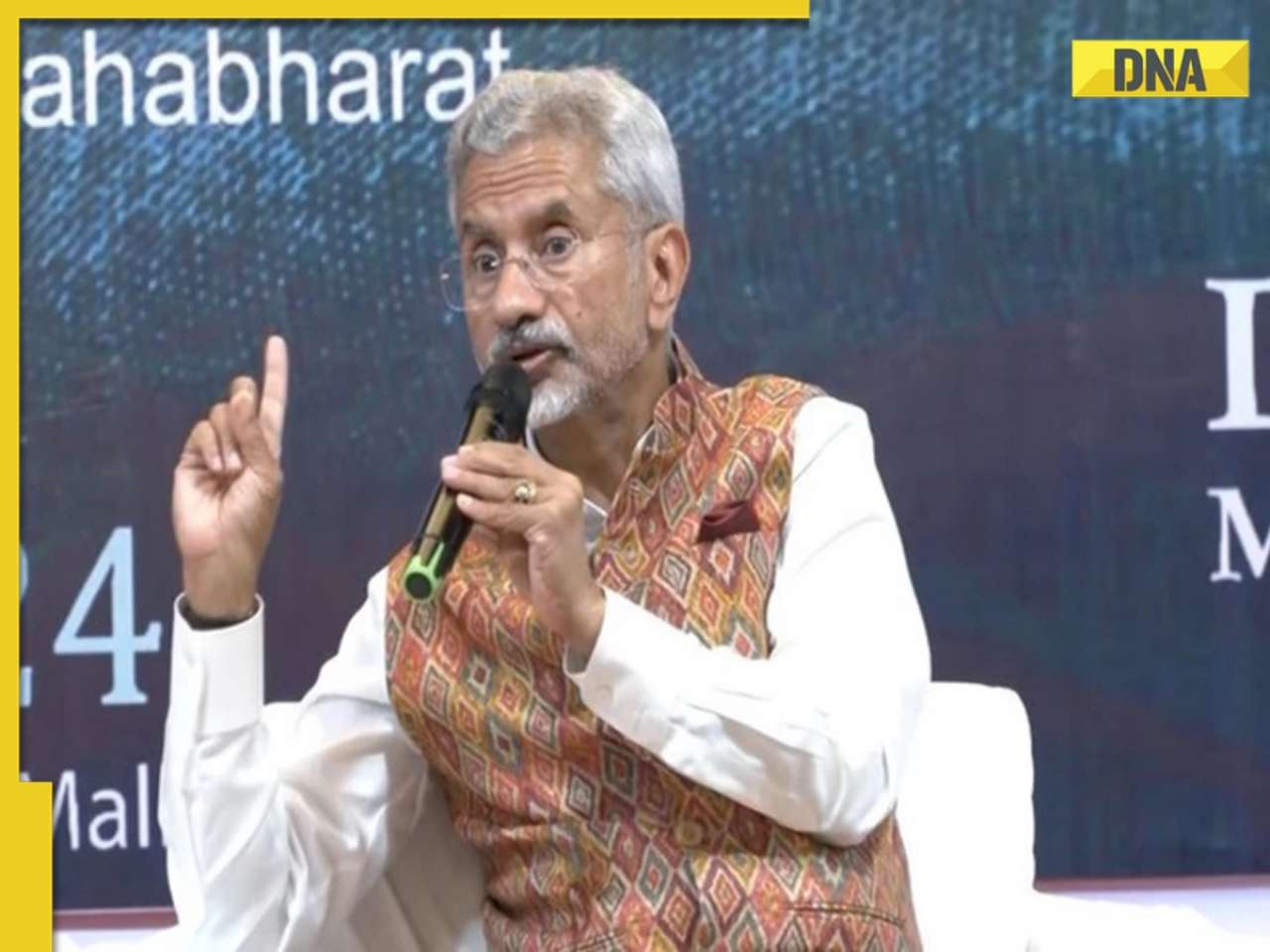Bush has no locus standi to question the editorial policy of Al Jazeera. But, the world has a right to know the truth about this dangerous man, says Ashis Ray.
It is gravely worrying that Britain's Daily Mirror newspaper reported the United States president, George Bush, entertained thoughts of bombing the Qatar headquarters of the television news channel Al Jazeera in April last year and was talked out of this by British prime minister Tony Blair.
In the absence, as yet, of documentary evidence, it would be premature to pronounce Bush as guilty. However, the alleged conversation is not inconsistent with the catalogue of US obsession to control the international information order. Besides, the British government's draconian efforts to thwart media from publishing the memo on the Bush-Blair tete-a-tete, rather arouses concern.
An integral aspect of the Cold War was the fierce fight for domination of the airwaves. Indeed, the collapse of communism in the Soviet Union and Eastern Europe can to a significant extent be attributed to the West's success in this sphere. Ronald Reagan, as US president, ascribed his Soviet counterpart, Mikhail Gorbachev's acceptance of détente and introduction of glasnost and perestroika to this superiority of the West.
BBC's external radio comprises of services in over 40 languages other than English, funded by the British Foreign Office (Foreign Ministry). During the Cold War, the East European wing was nothing but skilful propaganda to penetrate the hearts and minds of people under communist rule.
Organisations such as Voice of America (VOA) — virtually a part of the United States State Department — Radio Free Europe and Radio Liberty, both operated by the American Central Intelligence Agency (CIA), indulged in the same activity, but not with BBC's finesse and in the case of VOA, with distinctly less favourable results.
Regions immediately east of the ‘iron curtain’ could receive terrestrial television signals from the West, as well. Then, with the advent of satellite TV, the scope incision opened up further. Of course, these and the radio transmissions could only be intercepted at great risk.
Moscow tended to reply in kind, but was somewhat unsophisticated in its approach. Only its camp followers in the West swore by its assertions. A notable feather in the Soviet cap, though, was the spread of the Campaign for Nuclear Disarmament (CND) in Western Europe, though its broadcasts cannot wholly claim credit for this.
Eventually, it was simply unviable to deny an educated and intelligent populace freedom of information and entertainment. The broadcasts from the West inevitably prompted inhabitants in the East to compare the two existences. Therefore, it was not surprising they opted for the Western model when push came to shove.
The trans-national combat to corner public opinion persists. China, North Korea and Cuba remain western, especially US, targets. But radio has been overwhelmingly replaced by satellite TV since the 1980s or the arrival of Cable News Network International ( CNNI).
In the first outbreak of hostilities between the US and Iraq in 1991, CNNI was the only available satellite news channel. Iraqis, historically sceptical of their national media, had a tendency to trust BBC's Arabic Service for not just overseas developments, but news about their own country. During and after the conflict, the hegemony of Bush House, CNNI and (from 1992) BBC World — ensured that the Anglo-American perspective held sway over Iraqis. This is not to suggest that that either BBC World or CNNI were disingenuous. But unpalatable Iraqi opinion was rendered limited airtime. Moreover, most other Arabs were inimical to Iraq's conquest of Kuwait in the first place.
When the US embarked on its invasion and occupation of Iraq in 2003, several Arab news channels, most prominently Al Jazeera, had hit the scene. Iraqis not only had a choice, but were more comfortable with their indigenous bouquet. Thus, as the audiences for BBC World and CNNI dwindled, so did US influence over the Iraqi masses.
The Bush administration is not above suspicion in respect of either a cruise missile decapitating Al Jazeera's office in Kabul or a bomb landing on this channel's Baghdad bureau.
Al Jazeera, airing an Arab interpretation of events, is a thorn in the side for Bush. It does not always get it right; indeed, at times it may have got it horribly wrong. But there is no evidence to establish that it is the mouthpiece of either Al Qaeda or any other terrorist group. Admittedly, it is a network on a learning curve in a part of the world inexperienced in terms of media freedom. But it endeavours to be independent.
As leader of a country where vast sections of media stoop to being doormats of the administration on issues such as the US involvement in Iraq, Bush has no locus standi to question the editorial policy of Al Jazeera. On the contrary, the world has a right to know the truth about this dangerous man.
The writer is editor-director, RayMedia, London
![submenu-img]() Meet IIT-JEE topper with AIR 1, son of government school teachers, he went on to pursue...
Meet IIT-JEE topper with AIR 1, son of government school teachers, he went on to pursue...![submenu-img]() Salman Khan house firing case: One more Lawrence Bishnoi gang member arrested by Mumbai Police
Salman Khan house firing case: One more Lawrence Bishnoi gang member arrested by Mumbai Police ![submenu-img]() Mukesh Ambani to host Anant-Radhika's second pre-wedding function: Trip to start from Italy with 800 guests and end in..
Mukesh Ambani to host Anant-Radhika's second pre-wedding function: Trip to start from Italy with 800 guests and end in..![submenu-img]() Driver caught on camera running over female toll plaza staff on Delhi-Meerut expressway, watch video
Driver caught on camera running over female toll plaza staff on Delhi-Meerut expressway, watch video![submenu-img]() 'If you come and do something here...': EAM S Jaishankar on India's 'message' against terrorism
'If you come and do something here...': EAM S Jaishankar on India's 'message' against terrorism![submenu-img]() Meet IIT-JEE topper with AIR 1, son of government school teachers, he went on to pursue...
Meet IIT-JEE topper with AIR 1, son of government school teachers, he went on to pursue...![submenu-img]() TN 11th Result 2024: TNDGE Tamil Nadu HSE (+1) result declared, direct link here
TN 11th Result 2024: TNDGE Tamil Nadu HSE (+1) result declared, direct link here![submenu-img]() Meet doctor who cracked UPSC exam with AIR 9 but didn’t became IAS due to…
Meet doctor who cracked UPSC exam with AIR 9 but didn’t became IAS due to…![submenu-img]() TN 11th Result 2024 to be declared today; know how to check
TN 11th Result 2024 to be declared today; know how to check![submenu-img]() Meet man who worked as coolie, studied from railway's WiFi, then cracked UPSC exam to become IAS, secured AIR...
Meet man who worked as coolie, studied from railway's WiFi, then cracked UPSC exam to become IAS, secured AIR...![submenu-img]() DNA Verified: Is CAA an anti-Muslim law? Centre terms news report as 'misleading'
DNA Verified: Is CAA an anti-Muslim law? Centre terms news report as 'misleading'![submenu-img]() DNA Verified: Lok Sabha Elections 2024 to be held on April 19? Know truth behind viral message
DNA Verified: Lok Sabha Elections 2024 to be held on April 19? Know truth behind viral message![submenu-img]() DNA Verified: Modi govt giving students free laptops under 'One Student One Laptop' scheme? Know truth here
DNA Verified: Modi govt giving students free laptops under 'One Student One Laptop' scheme? Know truth here![submenu-img]() DNA Verified: Shah Rukh Khan denies reports of his role in release of India's naval officers from Qatar
DNA Verified: Shah Rukh Khan denies reports of his role in release of India's naval officers from Qatar![submenu-img]() DNA Verified: Is govt providing Rs 1.6 lakh benefit to girls under PM Ladli Laxmi Yojana? Know truth
DNA Verified: Is govt providing Rs 1.6 lakh benefit to girls under PM Ladli Laxmi Yojana? Know truth![submenu-img]() Remember Harsh Lunia? Just Mohabbat child star, here's how former actor looks now, his wife is Bollywood's popular...
Remember Harsh Lunia? Just Mohabbat child star, here's how former actor looks now, his wife is Bollywood's popular...![submenu-img]() Mother's Day 2024: Bollywood supermoms who balance motherhood, acting, and run multi-crore businesses
Mother's Day 2024: Bollywood supermoms who balance motherhood, acting, and run multi-crore businesses![submenu-img]() Rocky Aur Rani's Golu aka Anjali Anand shocks fans with drastic weight loss without gym, says fitness secret is...
Rocky Aur Rani's Golu aka Anjali Anand shocks fans with drastic weight loss without gym, says fitness secret is...![submenu-img]() In pics: Ram Charan gets mobbed by fans during his visit to Pithapuram for ‘indirect campaign’ for uncle Pawan Kalyan
In pics: Ram Charan gets mobbed by fans during his visit to Pithapuram for ‘indirect campaign’ for uncle Pawan Kalyan![submenu-img]() Streaming This Week: Yodha, Aavesham, Murder In Mahim, Undekhi season 3, latest OTT releases to binge-watch
Streaming This Week: Yodha, Aavesham, Murder In Mahim, Undekhi season 3, latest OTT releases to binge-watch![submenu-img]() Haryana Political Crisis: Will 3 independent MLAs support withdrawal impact the present Nayab Saini led-BJP government?
Haryana Political Crisis: Will 3 independent MLAs support withdrawal impact the present Nayab Saini led-BJP government?![submenu-img]() DNA Explainer: Why Harvey Weinstein's rape conviction was overturned, will beleaguered Hollywood mogul get out of jail?
DNA Explainer: Why Harvey Weinstein's rape conviction was overturned, will beleaguered Hollywood mogul get out of jail?![submenu-img]() What is inheritance tax?
What is inheritance tax?![submenu-img]() DNA Explainer: What is cloud seeding which is blamed for wreaking havoc in Dubai?
DNA Explainer: What is cloud seeding which is blamed for wreaking havoc in Dubai?![submenu-img]() DNA Explainer: What is Israel's Arrow-3 defence system used to intercept Iran's missile attack?
DNA Explainer: What is Israel's Arrow-3 defence system used to intercept Iran's missile attack?![submenu-img]() Salman Khan house firing case: One more Lawrence Bishnoi gang member arrested by Mumbai Police
Salman Khan house firing case: One more Lawrence Bishnoi gang member arrested by Mumbai Police ![submenu-img]() Meet actress, who got rejected for her looks, had no hit for 15 years; later beat Alia, Deepika, Katrina at box office
Meet actress, who got rejected for her looks, had no hit for 15 years; later beat Alia, Deepika, Katrina at box office![submenu-img]() Abdu Rozik breaks silence on his wedding announcement being called ‘publicity stunt’: ‘The whole world is…’
Abdu Rozik breaks silence on his wedding announcement being called ‘publicity stunt’: ‘The whole world is…’![submenu-img]() Meet actress who made debut with Salman Khan, had super flop career, then got TB, now lives in chawl, runs..
Meet actress who made debut with Salman Khan, had super flop career, then got TB, now lives in chawl, runs..![submenu-img]() Meet actress who worked with Naseeruddin Shah, sister of popular models, is now getting trolled on social media for..
Meet actress who worked with Naseeruddin Shah, sister of popular models, is now getting trolled on social media for..![submenu-img]() Driver caught on camera running over female toll plaza staff on Delhi-Meerut expressway, watch video
Driver caught on camera running over female toll plaza staff on Delhi-Meerut expressway, watch video![submenu-img]() Delhi man takes 200 flights in 110 days, steals lakhs worth of jewelry from passengers
Delhi man takes 200 flights in 110 days, steals lakhs worth of jewelry from passengers![submenu-img]() Viral video: Man makes paratha with 'diesel', internet reacts
Viral video: Man makes paratha with 'diesel', internet reacts![submenu-img]() Viral video of 'black jalebi' leaves internet in shock; netizens say 'hey bhagwan...'
Viral video of 'black jalebi' leaves internet in shock; netizens say 'hey bhagwan...'![submenu-img]() Real-life Bambi and Thumper? Adorable deer and rabbit video melts hearts online
Real-life Bambi and Thumper? Adorable deer and rabbit video melts hearts online





















































)
)
)
)
)
)